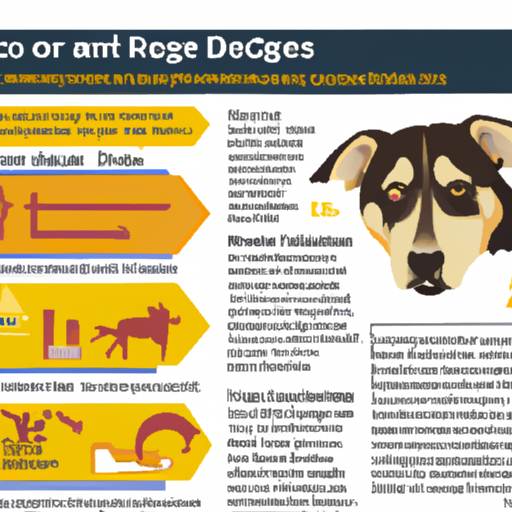As a dedicated caregiver to your furry friend, it’s essential to be well-informed about potential health issues that might affect them. One such issue is retching in dogs. But what exactly is it?
Understanding Retching in Dogs
Retching, or dry heaving, is a common symptom in dogs that can be concerning for pet owners. It often resembles vomiting but without any substance being expelled. Your dog might hunch over, flex their abdominal muscles, and open their mouth wide. It might appear as if they’re trying to vomit, but nothing comes out.
Causes of Retching in Dogs
Retching in dogs can be caused by many factors. Here are a few common ones:
- Gastric Dilation and Volvulus (GDV): This life-threatening condition occurs when a dog’s stomach twists on itself, causing difficulty breathing and retching without vomiting.
- Bloat: Similar to GDV, bloat causes a dog’s stomach to fill with gas and possibly twist. It leads to retching, a bloated appearance, and other symptoms.
- Foreign Body Obstruction: Dogs are curious creatures, and sometimes they swallow items they shouldn’t, leading to an obstruction in their digestive tract and causing retching.
- Gastroenteritis: This is an inflammation of the stomach and intestines that can cause retching, vomiting, and diarrhea.
- Kennel Cough: This contagious respiratory disease can cause a harsh, dry cough that might be mistaken for retching.
Recognizing Retching Symptoms
As a responsible pet owner, you should be able to recognize the symptoms of retching. These include:
- Persistent attempts to vomit without bringing anything up
- Abdominal discomfort
- Excessive drooling
- Lethargy
- Loss of appetite
How to Respond to Retching in Dogs
| Actions | Reasons |
|---|---|
| Don’t panic | Staying calm will help you think clearly and take appropriate action. |
| Call the vet immediately | Retching could be a sign of a serious condition that requires immediate medical attention. |
| Don’t try to induce vomiting | This could cause more harm, especially if your dog has an obstruction or a twisted stomach. |
| Monitor your dog closely | Watching your dog’s behavior and symptoms can provide important information to the vet. |
FAQs
Q: Can retching be a sign of poisoning?
A: Yes, retching can be a sign of poisoning, especially if accompanied by other symptoms like drooling, lethargy, or diarrhea.
Q: My dog is retching but seems fine otherwise. What should I do?
A: Even if your dog seems fine, retching is not normal. Contact your vet to discuss the symptoms.
Q: How can I prevent my dog from retching?
A: Preventing retching involves stopping your dog from eating too quickly, keeping small objects out of reach, and maintaining regular vet check-ups.
Q: Can retching be a symptom of stress or anxiety?
A: Yes, some dogs may retch due to stress or anxiety. However, it is best to consult a vet to rule out any physical health issues.
Remember, as a caregiver, your role is crucial in ensuring the health and well-being of your pet. Stay informed, stay vigilant, and seek veterinary care when necessary.



